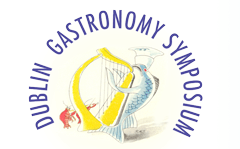Start Date
29-5-2024 11:30 AM
End Date
29-5-2024 11:45 AM
Description
This paper delves into the intricate interplay of food scarcity and memory in contemporary Havana, Cuba, drawing on a period of immersive fieldwork conducted in the summer of 2022. Situating itself amidst the lived experiences of diverse Cubans, the study examines the enduring impact of historical challenges, particularly the Special Period, on present-day perceptions and experiences. Employing an oral history methodology rooted in collective memory theory, the research explores how food serves as a potent medium for encapsulating past experiences and shaping future imaginaries. Through oral narratives spanning from 1941 to 2022, the paper uncovers diverse memories and emotions associated with food, ranging from nostalgia for pre-revolution abundance to the hardships endured during the Special Period and contemporary struggles with food scarcity. The analysis highlights the multifaceted nature of food as a cultural, social, and political symbol, embodying aspirations, traumas, and collective resilience. By grounding our understanding in materiality and embracing diverse perspectives, this paper moves beyond static narratives, offering insights into the complexities of Cuban society and the enduring impact of historical challenges on collective memory and identity.
Creative Commons License

This work is licensed under a Creative Commons Attribution-NonCommercial-Share Alike 4.0 International License.
DOI
https://doi.org/10.21427/1vs8-f754
Included in
Caribbean Languages and Societies Commons, Food Security Commons, Food Studies Commons, Latin American History Commons, Latin American Studies Commons, Social and Cultural Anthropology Commons
Food, Memory, and Cuban Society: Unraveling Trauma, Traditions, and Future Imaginaries in Havana
This paper delves into the intricate interplay of food scarcity and memory in contemporary Havana, Cuba, drawing on a period of immersive fieldwork conducted in the summer of 2022. Situating itself amidst the lived experiences of diverse Cubans, the study examines the enduring impact of historical challenges, particularly the Special Period, on present-day perceptions and experiences. Employing an oral history methodology rooted in collective memory theory, the research explores how food serves as a potent medium for encapsulating past experiences and shaping future imaginaries. Through oral narratives spanning from 1941 to 2022, the paper uncovers diverse memories and emotions associated with food, ranging from nostalgia for pre-revolution abundance to the hardships endured during the Special Period and contemporary struggles with food scarcity. The analysis highlights the multifaceted nature of food as a cultural, social, and political symbol, embodying aspirations, traumas, and collective resilience. By grounding our understanding in materiality and embracing diverse perspectives, this paper moves beyond static narratives, offering insights into the complexities of Cuban society and the enduring impact of historical challenges on collective memory and identity.
